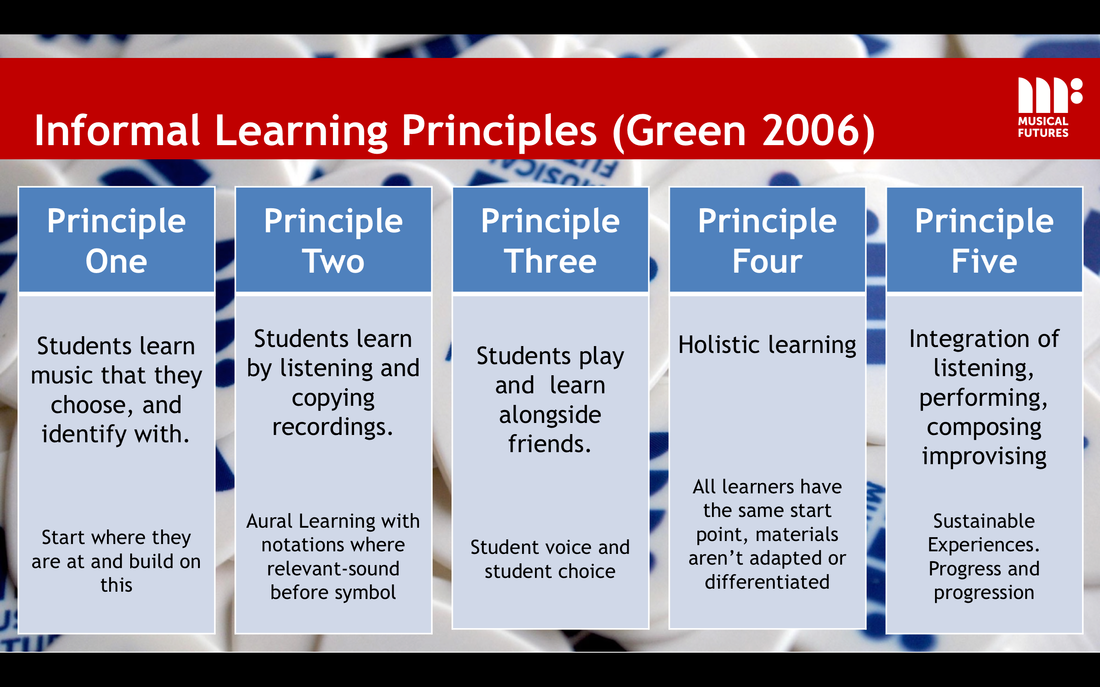|
All the news from Musical Futures International
|
 A guest blog from Anna Gower (first published on www.musicalfutures.org) The new specifications for GCSE music in the UK and across our international schools networks have well and truly kicked in. Often labeled as ‘more demanding’, they have triggered much debate about how music programmes can prepare pupils for the new challenges of the formal examinations syllabus. At Musical Futures, we often hear this question at our training events. ‘How does adopting a Musical Futures approach prepare students for GCSE/IB/VCE?’ I’ve spent some time reflecting on how best to answer this question and have come up with the following thinking points. Making content relevant Musical Futures is an approach to music teaching and learning. Recently, Musical Futures has developed a series of new resources designed to get teachers started, but the core pedagogy can be lifted and applied to any content. Teaching notation and theory As an approach, Musical Futures doesn’t negate the use of relevant notations where appropriate. It simply asks that notation isn’t the first and only form of music learning for students. The value of learning aurally remains central to the Musical Futures approach. We have plenty of examples where students make notation work for them. Pupils seek out ways to record and replicate their music visually. Familiarity with notation in the right context can be a powerful way to make music more accessible. This helps students to rise to the challenge of following and understanding a score at GCSE. Building skills Performing, listening, responding, composing and improvising are all key to how music is created and shared. These skills form a key part of assessment in GCSE music. Musical Futures encourages students to explore and develop through playing and responding to music from the start. They build musical skills, develop understanding through participatory musical experiences. Key words and concepts In Musical Futures lessons, teachers act as facilitators and coaches. They work alongside students to support them in setting and achieving shared learning objectives. Using musical key words and concepts in context helps give relevance to what can otherwise become a bullet list of vocabulary to be memorised and repeated under exam conditions. Engagement and confidence Musical Futures improves engagement with classroom music. It leads to increased uptake of music beyond the point at which it is statutory. What better way to start a music examinations course than with learners keen and ready to embark on the next stage of their musical experience? Discuss these and other relevant issues in music education by joining our international teacher community.
0 Comments
Leave a Reply. |
AuthorWrite something about yourself. No need to be fancy, just an overview. Archives
August 2023
Categories |
